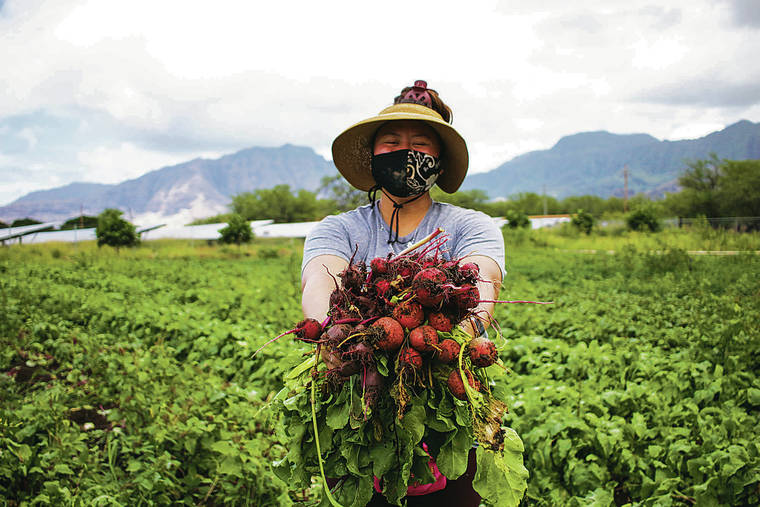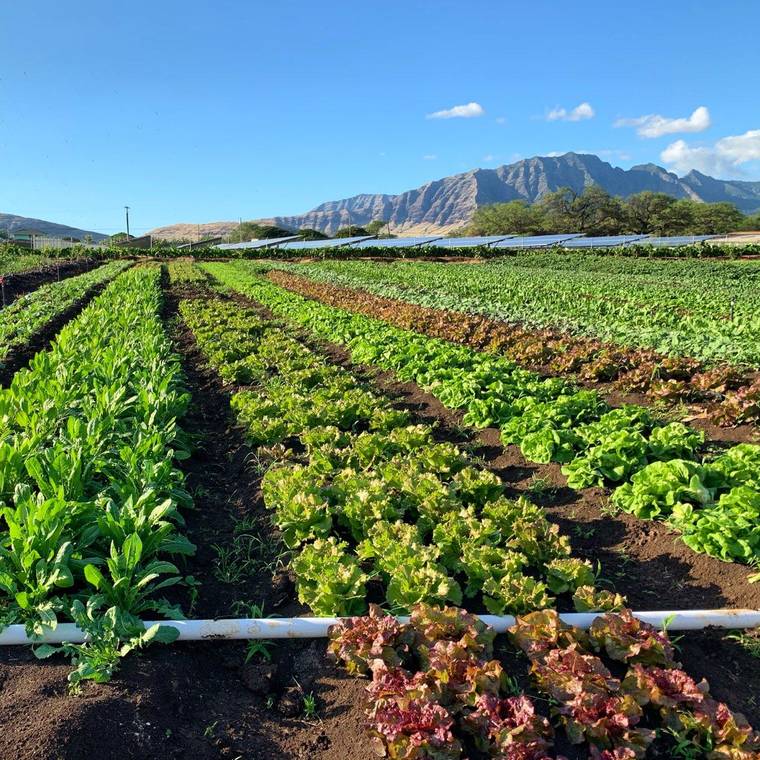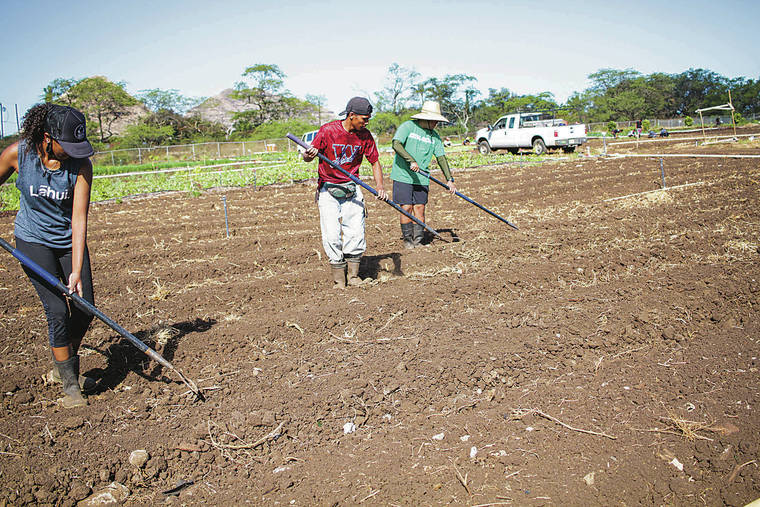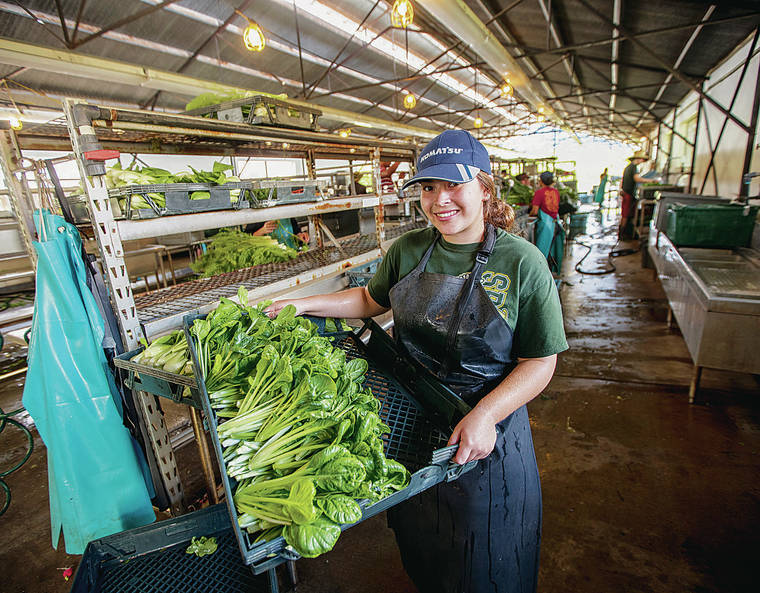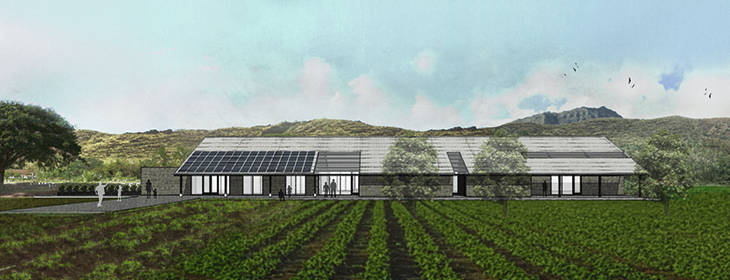A nonprofit organic farm in Waianae that helps young adults, largely from the area, develop skills and go to college has secured $11.5 million to grow operations.
MA‘O Organic Farms recently finished arranging the financing from 27 organizations, agencies and individuals that will pay for a new crop processing facility along with expanded field operations and educational support as part of a long-term growth initiative aimed at making the 20-year-old enterprise bigger and more financially self-sustaining.
MA‘O officials said they plan to start building a state-of-the-art post-harvest processing facility early next year and begin farming 236 acres of fallow land that they bought last year in Lualualei Valley next to their previously existing
45-acre farm site.
The expansion is projected to result in a fourfold increase in MA‘O youth training programs, a tenfold increase in organic food production, 75 new jobs, agricultural housing on the farm and annual farm revenue rising to $11 million from about $600,000.
MA‘O projects that in seven years it will generate revenue to meet 90% of its annual budget that cuts its need for supplemental charitable funding that currently covers 65%
of expenses.
The biggest contribution in new
financing was a $2 million loan from the W.K. Kellogg Foundation.
“MA‘O’s ability to expand organic fresh food production while developing youth leaders and creating sustainable jobs gives the families and children of Waianae an opportunity to thrive,” Cynthia Muller, the Michigan-based foundation’s director of mission investment, said in a statement. “It offers a model for other communities — and for networks focused on equity in production, distribution and consumption.”
MA‘O also received government grants that included $1.6 million from the U.S. Department of Commerce Economic Development
Administration, $1.1 million from the U.S. Navy Readiness and Environmental Protection Integration Program, $750,000 from the state’s Legacy Land Conservation Program, $200,000 from the state and $122,000 from the city.
Private grants included $1.75 million from the Harry and Jeanette Weinberg Foundation, $750,000 from the Hawaii Community Foundation’s Ulupono Fund, $350,000 from the Freeman Foundation, $300,000 from the Kosasa Foundation, $250,000 from the Maurice and Joanna Sullivan Family Foundation, $200,000 from Kamehameha Schools, $100,000 from the Atherton Family Foundation and $75,000 from Ulupono Initiative.
Part of the new financing, which MA‘O has been working to raise over the last three years, retired a $3.4 million bank loan used to buy the 236-acre parcel that was once farmed in sugar cane and later was unsuccessfully pursued for a golf course and then an industrial park.
With its new financial footing, MA‘O said it is now focused on “building a future of plenty.”
This includes not only growing more organic food, which it supplies to customers including retailers and restaurants, but also its educational work in which MA‘O pays the college tuition for young adults who work part time on the farm as part of MA‘O’s community-based economic development model.
MA‘O said that since 2001 it has helped its student interns, who earn a monthly stipend and full college tuition, earn 120 associate’s
degrees, 43 bachelor’s degrees and three master’s degrees.
“This is a journey of kuleana (responsibility): Young people stepping up to work hard, take care of land, striving for success in college, committing to their ohana (family), and to a sustainable and resilient
future for these islands,” Gary Maunakea-Forth, MA‘O co-founder and director of operations, said in a statement.
